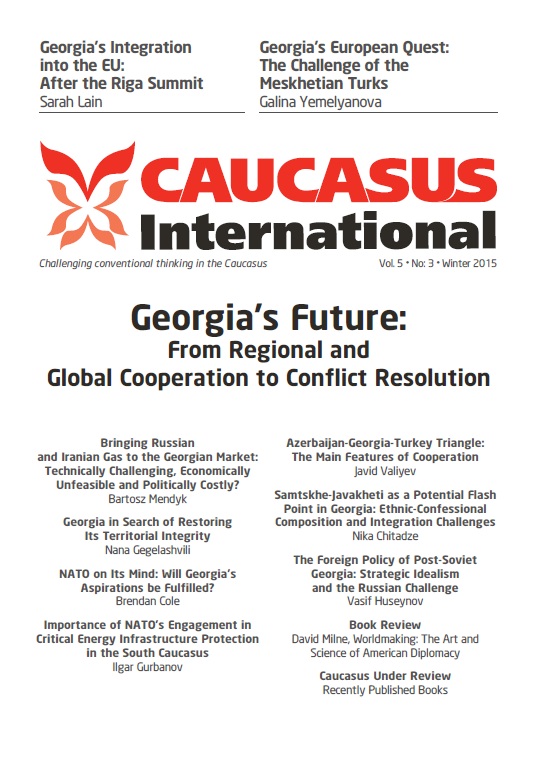Bringing Russian and Iranian Gas to the Georgian Market: Technically Challenging, Economically Unfeasible and Politically Costly?
After the disintegration of the Soviet Union, the three South Caucasus countries found themselves in a power vacuum, which led to various geopolitical events and even catastrophes (such as territorial conflicts and separatism). However, this vacuum also enabled two of the newly independent South Caucasus countries – Azerbaijan and Georgia – to jointly implement major oil and gas projects, the Baku-Tbilisi-Ceyhan oil pipeline and Baku-Tbilisi-Erzurum gas pipeline, both of which bypassed Russia. Initially, the two states were dependent on Russia which was a key transit country for Azerbaijan and a major gas supplier to Georgia. After August War in 2008, Georgia suspended its gas imports from Russia, except the volume received as a ‘transit fee’ for the gas supplied to Armenia. Since 2007, Azerbaijan, by virtue of its vast energy resources, has been supplying the majority of Georgia’s oil and gas demand and almost completely met its strategic ally’s energy needs when the Russian supplies were cut down during 2008 war. However, a statement by Georgia’s Energy Minister Kakha Kaladze in September 2015 on the purchase of Russian and potentially Iranian gas by Georgia raised some questions. This article will examine the extent to which the purchase of Russian gas is realistic and compatible with Georgia’s national interests and to what extent it poses the risk to its relations with Azerbaijan, as well as the feasibility of bringing the Iranian gas to Georgia given the technical shortcomings and political backlash displayed by Russia. The author’s arguments are based on the reliability of Azerbaijan as both supplier and neighbor, as well as the technical difficulties and political repercussions respectively of bringing Iranian and Russian gas to Georgia.
Latest news
- 03/17/2020 Call for Submission: “Non-Alignment Movement and Its Perspective in International Affairs”. Deadline: 1 July 2020 2626 views
Popular articles
- 02/24/2020 The Role of Irredentism in Russia’s Foreign Policy 2536 views
- 02/24/2020 Construction of sub-national identity vis-à-vis parent state: Gagauz case in Moldova 2218 views
- 02/24/2020 The Conflict in Ukraine - The Geopolitics of Separatism and Divergent Identities (Commentary) 2073 views
- 02/24/2020 The Role of the Soviet Past in Contemporary Georgia 2044 views





